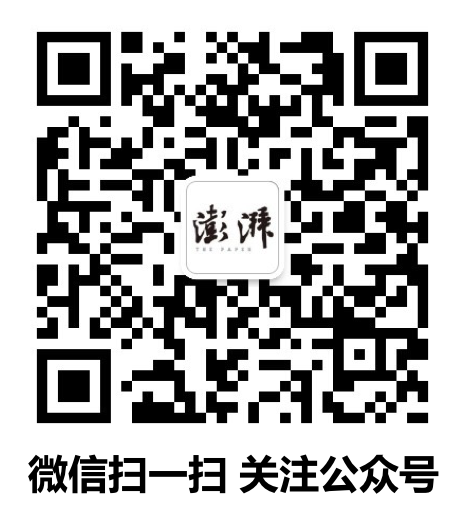- +1
学者访谈|大陆第一位外籍政治学院长的观察:儒家思想如何影响现代中国政治?
Editor's Note
2017年1月1日,贝淡宁(Daniel Bell)被任命为山东大学政治与公共管理学院院长,他是中国大陆历史上第一位任大学政治学院院长的外籍人士。这在当时的学界和公共舆论中引起了不小的轰动。
在新书 The Dean of Shandong 一书中,贝淡宁记述了这段他自称为“小官僚”(a minor bureaucrat)的经历,以内部视角揭示了中国学术界运作机制及其背后的政治体制特征。
本书一经面世就受到了国内外学界、媒体和读者的广泛关注和评论。8月,贝淡宁接受了CGTN《论中国》栏目的采访,结合其担任院长期间的见闻与反思,分享了他对于儒家思想这一古老哲学的看法。
在他看来,儒家思想并非是枯燥、过时的,而是充满生命力、与时俱进的哲学。要理解中国乃至东亚的社会和政治体系,需要追溯并深刻理解儒家传统思想。

作为中国文化的重要组成部分,儒家思想深深镌刻在中国人的精神基因之中,体现在人们的言行举止、社会的伦理规范等方面。儒家思想的内核是什么?这一古老的哲学思想的当代价值体现在哪里?香港大学教授贝淡宁,作为研究儒家思想的外籍学者,深度融入中国社会,他将与您分享儒家思想的现实意义。内容仅代表作者观点,而非本台观点。
Welcome to China Talk. My name is Daniel Bell, Chinese name is Bei Danning. I'm from Montreal, Canada, but I've spent about half of my life living and working in China. During that time, I've come to love and appreciate Confucianism, contrary to my initial impressions of the tradition as a kind of boring and conservative and dead philosophy. The more I learn about Confucianism, the more I realize that it's very much a living and evolving philosophy.
欢迎收看《论中国》。我叫丹尼尔·贝尔,中文名字是贝淡宁。我来自加拿大蒙特利尔。但我这一生大约有一半的时间都在中国工作和生活。在此期间,我逐渐喜欢并欣赏儒家思想。与我最初的印象不同,儒家思想并非是枯燥、守旧且过时的哲学思想。我对儒家思想的理解越深入,就越发现它充满生命力,且随着时代的发展不断演变。
Starting with Confucius himself. Confucius, again, there is a stereotype of him in the West as this boring and conservative teacher, who just says, pronounce cryptic words that his students blindly accept. The master said, and then the students just blindly accept. But actually, it's very different. What he says is tailored individually to each student's needs and particularities. There's an assumption that everyone can improve, and the role of the teacher is to improve each student in his or her own way. That's why now in China, he's known as a teacher of teachers.
首先从孔子本人说起。在西方,孔子往往被刻画成一个呆板守旧的教师形象——讲话晦涩难懂,学生们则一味盲从,孔子说什么,学生们都深信不疑。但实际情况远非如此,孔子会根据每个学生的需求和特质因材施教。他坚信每个人都能够取得进步,而老师的作用则是启发每个学生以自己的方式获得进步,也是为什么在中国孔子被誉为“万世师表”。
Now, the thing about Confucianism is that, it's very much a living philosophy, and especially influences people in Shandong Province, which is a province of 100 million people. And people in Shandong tend to take great pride in their Confucian heritage. And it influences the way that people act in everyday life. If, for example, when there's a seating arrangement at a table, it's done according to seniority. But then eventually everybody is involved in the toasting and the eating, and it generates a strong sense of community and emotional bonding. So the hierarchies in Confucianism, they benefit those at the bottom, end of the hierarchies. That's what makes them desirable in the modern world.
儒家思想的魅力在于,它是一种富有生命力的哲学。在拥有上亿人口的山东省,其影响尤为深远。山东人以儒家文化传统为荣,儒家思想影响着他们生活的点点滴滴。举个例子,山东人的餐桌礼仪很有讲究,座次要按照辈分和资历安排,但最终餐桌上所有的宾客都有机会去敬酒用餐,由此产生出强烈的集体感和情感联系。所以,儒家思想中的等级观念能让身处最底层的人们同样受益,这也是儒家思想在现代社会仍具吸引力的原因。
So I had learned a lot about Confucianism, and I was lucky enough to be offered a post as of dean at Shandong University, which is a leading university in Shandong Province. I wrote a book about my experience, which is called "The Dean of Shandong." My aim in writing this book was both to honor my fellow students and teachers and administrators at Shandong University, and also frankly, I worry about the demonization of China in the West, for much of the reporting about China is entirely negative.
我从儒家思想中获益匪浅,而且我曾有幸被山东大学聘为政治学与公共管理学院院长。山东大学是当地顶尖的高校。我将这段经历写成了一本书,书名叫《我在山东当院长》。我写这本书的目的一方面是为了向山东大学的师生和管理人员致敬;另一方面,坦率地讲,也是担心西方对中国的妖魔化,因为许多西方媒体对中国的报道完全是负面的。

The Dean of Shandong (ISBN: 9780691247120)
In my book, I do discuss the problems, but I try to do so in a balanced way, and try to show that there's a lot of humanity and humor in everyday life, in academia, and even in politics that we should appreciate, rather than just blindly denounce. Now, some of the other values are involved. One of them is (what) we usually mistranslated as "Harmony", in Chinese, "He" in the word "He Xie". Because in English, we don't distinguish between harmony, typically, and conformity, especially when you talk about politics. Harmony sounds a little bit sinister, meaning that everybody thinks alike and has followed similar actions. I remember watching the Beijing Olympics opening ceremony. There was one character, this character "He" was chosen to represent Chinese culture. I remember I was watching an American journalist, who said, look at that! All the soldiers are marching in the same way. That's pretty scary that everybody thinks and acts alike. But in Chinese, everybody knows this saying from the "Analects" of Confucius, "Harmony in diversity," that we specifically distinguish between "Harmony" and "Tong", which we can translate as conformity or uniformity.
在书中,我并没有回避问题,而是试图以客观中肯的方式展示在日常生活、学术圈乃至政治环境中那些充满人情味和幽默感的一面。我们应该去欣赏这些方面,而非不分青红皂白地指责(中国)。儒家思想还包括一些其他的价值观,其中一个常被误译为英语中“Harmony”这个词。这就是中文“和谐”的“和”字。在英文语境中,我们通常不会去区分“和谐”与“一致”这两个词,尤其在谈论政治时。英语中的“和谐”包含些许负面意味,暗示着人人看法雷同,举止千篇一律。我记得,在观看北京奥运会开幕式时,“和”这个汉字被选来代表中国文化。一位美国记者点评道:“看呀!所有的士兵步伐一致,朝着同一个方向前进,这样思想言行的高度一致真令人毛骨悚然。”但在中文里,人人都知道孔子在《论语》中的名言:“和而不同。”由此可以看出中文里“和”与“同”是有明显区别的。“同”字可以译为英文的“一致”或“统一”。
So the idea of "He" really involves respecting, in fact, loving diversity, appreciating diversity, but on a kind of foundation of peaceful order. So some of the metaphors, including a soup: it's bland if it has one ingredient. But if it has many ingredients, then it's a delicious soup. Even in politics, if you have different views, it actually helps the country. This is the meaning of "He". So a better translation in English should be "harmony in diversity." And that's really central to the Confucian ethic.
所以“和”的真正内涵是尊重多样性,或者更确切地说,是喜欢、欣赏多样性,但“和”的基础是平和的秩序。所以有些形象的比喻,有人用汤来打比方:如果只有一种食材,它必然寡淡无味;但如果食材丰富,才是一道美味的汤肴。即使在政治层面,不同的观点实际上利于国家的发展,这就是“和”的内涵。所以在英语中“和”字更贴切的翻译应该是“和而不同”,这是儒家伦理道德的核心。
Now, you might ask, why has Confucianism been revived? Because it was more or less dead for much of the 20th century in China, where the main tradition was a tradition of anti-traditionalism. But since 30 years ago, history has made a raging comeback in China. People take great pride in their historical heritage. And politically, the main tradition was Confucianism, and it had great influence.
你可能会问,为什么儒家思想会复兴?在二十世纪相当长的时间里,儒家思想基本处于沉寂,因为当时社会的主流思想就是反对传统观念。然而,从三十年前开始,传统文化在中国再次全面流行,中国人开始以自己的文化底蕴为荣。在政治领域,儒家思想曾是主导思想,并产生了深远影响。
Now, as mentioned, Confucianism is very diverse, and it has many different interpretations. But there are certain strands that are quite constant. Two, very briefly. The good life for Confucianism involves the pursuit of compassionate social relations. And that's really key. It's not an otherworldly philosophy. There's hardly anything about the afterlife. It's really about how we should learn to engage and to love and also be responsible in our social relations. There's also an issue about the best life, (which) involves serving the community, so people love to, well, compete to be public officials in order to have that opportunity to serve the community.
就像前面所说的,儒家思想包罗万象,相关诠释也是五花八门,但一些核心思想是一以贯之的。简单来说,有两点。一是儒家所憧憬的美好生活离不开一个富有同理心的社会关系,这一点至关重要。儒家思想不是超世哲学,对于来世关注甚少。它真正关心的是如何与他人交往,如何去爱,如何在各类社会关系中承担应有的责任。二是儒家所认为的理想社会是一个服务型社会,因此人们热衷于入仕,以便有机会服务社会。
Another value which has been revived is the value in Chinese "Li". In English, we can translate as "ritual propriety". The idea is that we can use laws to regulate people to stop them from doing bad things. But if we really want to have a kind of harmonious society, that comes to informal mechanisms, like rituals that generate a sense of community. This is one reason why the idea of ritual propriety has been revived in different spheres of social and even political life in China.
另一种被重拾的儒家价值观在中文里称为“礼”。在英文中,我们可以将其翻译为“礼仪规范”。其初衷是通过法律来规范人们的举止,阻止人们做坏事。但如果我们真的想要构建一个和谐社会,就需要约定俗成的机制,比如能够培养集体感的礼仪。这也是为何“礼”的概念,在中国社会包括政治在内的各个领域得以重振的原因。
Another value that's been revived a lot is filial piety, which we can also translate as reverence for elderly members of the family and ancestors. So one of the festivals that has been revived in China is called the Qingming Festival, the ancestor worship festival. This is sort of thing that evolved from the bottom. Literally, hundreds of millions of ordinary Chinese people took the day off on that particular day to worship their ancestors. Eventually, the government said, fine, let's just make it into a national holiday. So, a lot of this revival comes from the bottom up, not just from the top.
还有一个得以复兴的价值观是孝道,我们也可以将其翻译成对家族长辈和祖先的尊敬。中国恢复的许多传统节日里,就包括清明节,人们会在那一天祭奠先人。这个节日的回归是民意使然。每年都会有几亿中国百姓选择在清明那一天休假,去祭拜他们的祖先。最终政府表态了,好,就将这一天定为法定节假日。类似这般的复兴热潮是自下而上的,而不仅仅由政府引导。
That said, some of the reasons for the revival do are political, because the top leaders and also the middle level leaders like, for us, the bureaucracy in Shandong province. Yes, it is a communist country and we do value the communist tradition. But we also think that our form of social life and our form of political organization has much earlier roots. In order to seek, to think about, to make sense of our social and political system, we draw on the earlier Confucian tradition and some of the values that inspire us in the past. And also it continues to inspire us in the future. So that's one reason for the revival of Confucianism. It comes from the top.
然而,在儒家思想的复兴中,政治也起到了一定作用。因为无论是高层领导,还是像我们山东的中层官员,都起了作用。的确,中国是一个信仰共产主义的国家,看重共产主义传统。但中国人也深知,他们的社会与政治生活的组织形式有着更悠久的根源。如果想去思索并理解中国的社会和政治体系,我们就要去追溯更早期的儒家传统思想,以及那些曾在过去启发我们的价值观。这些思想也将在未来不断启发我们。这是儒家思想在当代复兴的原因之一,即来自上层的推动。
But there are also many economic reasons. I mean why has East Asia evolved in a relatively peaceful and harmonious way relative to other countries? It turns out that most of those countries have a Confucian heritage, not just China, but South Korea and Singapore. So what is it? People used to blame that the 20th century, people blamed the backwardness of China for, they said, because of our traditions, but then turns out that actually those traditions help us to modernize in a relatively peaceful way. Values like self-improvement, working for future generations, education of this worldly outlook, all these values underpin China's economic growth and form of modernization, which has taken place in the past 30 or 40 years, without a great deal of violence and social disruption compared to many other countries.
但儒家思想的复兴也有许多经济方面的原因,例如,为什么跟其他地区相比,东亚能够以相对和平与和谐的方式崛起和发展呢?原来这些国家大多都有着儒家文化传统,不仅仅在中国,韩国、新加坡也同样如此。这背后的原因是什么?在20世纪,人们常常把中国的落后归咎于传统思想与文化。然而事实证明,正是这些传统帮助中国以更加和平的方式推进现代化。不断进取、造福后代,这些入世的价值观的推行,为中国在过去三四十年间的经济增长与现代化建设提供了有力支撑,使中国与许多其他国家相比,避免大规模的暴乱和社会动荡。
But also, frankly, economic growth tends to make people more individualistic, especially in a capitalist influenced economy. There are certainly people who worry about excessive individualism in society. How do we counter that? Confucianism is beautiful in this way, because it emphasizes our social responsibilities. So as a wave of, let's say, countering excessive individualism in society, Confucianism has also made a comeback for that reason.
与此同时,坦白讲,经济增长往往会导致个人主义的盛行,特别是在深受资本主义影响的经济环境中。社会中极端个人主义的滋生引起了许多人的担忧。那我们该如何应对呢?儒家思想便能很好地解决这一问题,因为它强调社会责任感,可以说是一股抗衡社会中极端个人主义的力量。这也是儒家思想复兴的一个重要原因。
There's also academic reason. It turns out that many of the defenders of Confucianism today were forced to read it 30 or 40 years ago in order to denounce it, because it was viewed as a kind of feudal and backward thought system. But when they read it, they say this is actually far more interesting and complex and actually more modern sounding than we thought. And then once was more opening, those same intellectuals could draw on Confucianism and say that this is not only relevant for the modern world, but we can also use it to inspire our social and political reform in the future.
另外还有学术方面的原因。今天,许多儒家思想的支持者都曾经在三四十年前为了抨击儒家思想而阅读其经典著作,因为当时它被视为一套封建落后的思想体系,但真正读进去的时候,他们发现儒家思想比想象得更有趣更复杂,并且比人们想象得更与现代社会息息相关。随着思想愈加解放,这群人不断从中获得启发,发现儒家思想不仅对当今有重要的借鉴意义,还可以启发未来,推动社会与政治改革。
This is why, again, Confucianism far from being a backward, conservative philosophy, it's actually quite modern and desirable for the modern world. Confucianism, as a living tradition, is inspiring, not just for the present, but for the future as well. It's as valuable as other great traditions that humans have produced, including Christianity, Islam, Buddhism, liberalism. And if you take it seriously, it turns out that it's a tradition, not just that has produced great thinkers in the past, but that, I believe, will continue to inspire us in the future as well.
我再次重申,这就是为什么儒家思想远非一种落后保守的哲学。它实际上极具现代感,可以满足当代世界的需求。作为富有生命力的传统哲学,儒家思想不仅能激励当下,也将不断启发后世。儒家思想可以比肩其他人类的伟大思想,包括基督教、伊斯兰教、佛教、自由主义。如果你认真研读儒家思想就会发现,这一传统思想不仅在过去孕育了伟大的思想家,而且我坚信,它将继续在未来给我们带来启发。
So thank you very much. And I hope we can continue the discussion.

The Dean of Shandong (ISBN: 9780691247120)
2017年1月1日,贝淡宁(Daniel Bell)被任命为山东大学政治与公共管理学院院长,这是中国大陆历史上第一位任政治学学院院长的外籍人士。在 The Dean of Shandong 一书中,贝淡宁记述了这段他自称为“小官僚”(a minor bureaucrat)的经历,展现了中国学术界运作的幕后故事,以及它们对中国政治制度的启示。当院长的过程并不都是一帆风顺的——贝淡宁诙谐地讲述了存在的失误和误解。而贝淡宁的亲身经历也为理解当今中国提供了一个独特的视角。
本书一经面世就受到了知识界的广泛关注和评论,例如:
《金融时报》(Financial Times)评价本书:“ 时而坦率、时而敏锐、时而诙谐有趣......像贝淡宁这样充满智慧和洞察力写(中国)的人,值得被倾听。”
《柳叶刀》杂志主编 Richard Horton 指出:“(贝淡宁)希望鼓励人们‘理解和同情’这样一个在短短几十年内就取得非凡经济和社会成果的民族。”
哈佛大学历史学教授 James Hankins 认为:“这是一本闪闪发光、可读性强的书……贝淡宁的故事迷人且大胆,充满了自嘲的幽默。阅读它会让你比以前更了解中国和中国的制度。”
本书荣获《金融时报》评选的“夏季最佳书籍”(Financial Times Best Summer Book)
- END -
原标题:《学者访谈|大陆第一位外籍政治学院长的观察:儒家思想如何影响现代中国政治?》
本文为澎湃号作者或机构在澎湃新闻上传并发布,仅代表该作者或机构观点,不代表澎湃新闻的观点或立场,澎湃新闻仅提供信息发布平台。申请澎湃号请用电脑访问http://renzheng.thepaper.cn。





- 报料热线: 021-962866
- 报料邮箱: news@thepaper.cn
互联网新闻信息服务许可证:31120170006
增值电信业务经营许可证:沪B2-2017116
© 2014-2024 上海东方报业有限公司




